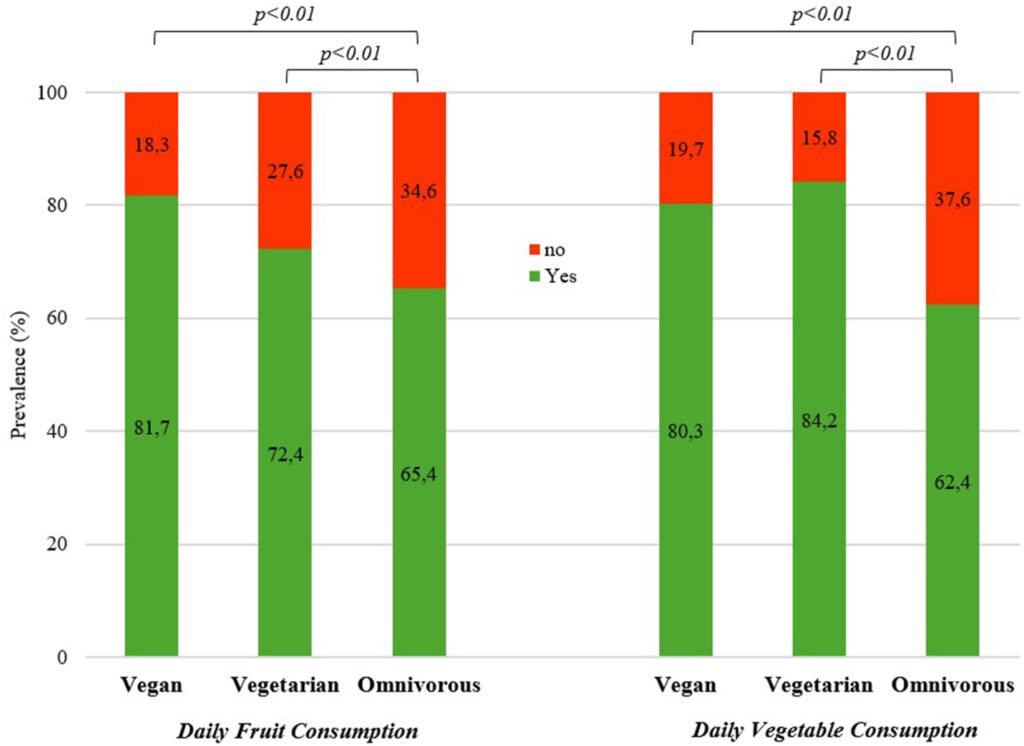
While health is the largest dietary driver for teens, 14% think eating meat is cool, compared to just 2% who say the same for vegan diets.
For the past few years, the narrative around Gen Z and Gen Alpha’s food habits revolved around their concern for the planet. More recently, that perception has unravelled, according to a new Austrian study.
Its results suggest that sustainability is now low on teenagers’ list of priorities when it comes to deciding what (or how) to eat. Instead, this cohort’s dietary habits are most driven by health, a factor cited by a third of respondents in the 8,800-person survey.
Moreover, the researchers analysed their lifestyle preferences, and found that 14% of teens find meat-eating cool. By contrast, only 6% say vegetarian diets are cool, dropping to just 2% for wholly plant-based eating.
The study was published in the Current Developments in Nutrition journal, and supported by Austria’s education, science and research ministry. “The findings indicate that following a vegan diet during childhood and adolescence is associated with more advantageous basic health behavioural choices,” the authors write.
Vegan teens are more active, but are plant-based diets cool?

According to the study, around 10% of Europeans eat a meat-free diet, with Austria leading the way. Additionally, more than half of its citizens (51%) have been reducing their meat intake. Among teens however, meat remains popular: most participants (93%) in the study followed an omnivore diet, while 5.5% were vegetarian and 1.5% vegan.
The mean age of respondents was 15, and their dietary motivations varied vastly. Omnivores, for example, care most about health (34%) and taste (21%), and are least concerned with environmental protection (1%) and animal welfare (2%).
Animal welfare is the largest dietary driver for vegetarians (29%), followed by health (27%) and taste (12%). Vegans surprisingly think little about the climate in their food choices (3%), instead placing an emphasis on health (35%) and the impact of diet on sports performance (20%)
That aligns with the finding that vegan teens are the most active during leisure time, and most consistently active across the week. “An underlying difference in nutrition and the consequential metabolism between the vegan pupils and the other diet types was likely the primary factor contributing to greater and more consistent physical activity levels,” the authors explain.
Across all the respondents, engaging in physical activity, sports and exercise is most commonly considered cool (26%). At the same time, 6% of Austrian teenagers think alcohol is cool, and 1% say the same for smoking.
Among vegetarians, only a quarter of respondents find their own diets cool, which drops to 16% for vegans and 15% for meat-eaters. Teens in middle school were more likely to view meat-eating in this light (17%) versus high-schoolers (13%).
Moreover, young women are more likely to follow meat-free diets and to find vegan and vegetarian eating cool, compared to boys. On the contrary, 19% of young men reported meat-eating as cool, compared to 11% of the women surveyed.
The researchers ascribe this to parental habits and “the sociocultural appropriation of meat-centred diets, especially among the male archetype of masculinity”. Most boys in the study live in rural areas, and so have formed the basis for their nutritional decision-making on the surrounding cultural and political factors, instead of scientific evidence of healthy and long-term sustainable nutrition.
Globally, the narrative around meat and masculinity has become lounder in recent months thanks to ‘manosphere’ influencers like Joe Rogan, Andrew Tate, and Jordan Peterson. Men who eat plant-rich diets have been labelled ‘soy boys’ by figures like US Vice-President JD Vance; in the UK, a quarter of men aren’t open to trying plant-based meat.
Subsidies, social media and school nutrition in focus

The study also analysed the dietary habits of teenagers following different eating patterns. Over eight in 10 vegans eat fruits daily, compared to 72% of vegetarians and just 65% of omnivores. When it comes to vegetables, vegetarians take the lead with 84%, followed closely by vegans (80%) – here, too, meat-eaters showcase a big gap at 62%.
Meat-eating boys display the lowest fruit and vegetable consumption, and vegan girls the highest. “This finding is especially relevant considering the connection of poor dietary habits with premature mortality, where it has been previously identified that diets low in fruits and vegetables were the cause of 20% compared with 42% of all deaths on a global compared with European level, respectively,” the study notes.
Meanwhile, vegetarians drink more water than the rest, while vegans drink more tea and energy drinks and omnivore sconsume the highest amount of syrup and fruit juice.
One reason why the study suggests meat consumption remains popular in Austria is the “strong foundation” of meat- and dairy-focused ads across the country, as well as the fact that rural communities are directly in contact with livestock farming as a means of financial dependence. Conversely, social media, informative documentaries, and peer support could explain why vegans are far more interested in health.
The authors also point to the subsidies afforded to the animal agriculture sector in the EU, with over 80% of subsidies under its Common Agriculture Policy going to this sector, despite its outsized impact on the environment.
The focus on vegan eating comes as Austria’s latest dietary guidelines advise a shift away from meat and dairy in favour of plant proteins, with the government designing a separate nutrition pyramid for vegetarians for the first time. This was followed by an update to the recommendations for school cafeterias, with the minimum criteria including vegan bread and pastries and at least one plant-based meal.
The researchers say the study supports a dual healthy eating and active living (HEAL) approach as the minimum recommendation to kickstart health-promoting behaviours at school.
“The present findings offer deeper insight into the relationship between diet type and basic health behaviour, which may contribute to improving the basic connection of HEAL and the related areas of lifestyle medicine (quality sleep, stress management, avoidance of substances, and better relationships) in secondary school settings in Austria,” they said.
The post Gen Alpha Teens: Health is Primary Diet Driver, While Young Men Say ‘Meat is Cool’ appeared first on Green Queen.
This post was originally published on Green Queen.